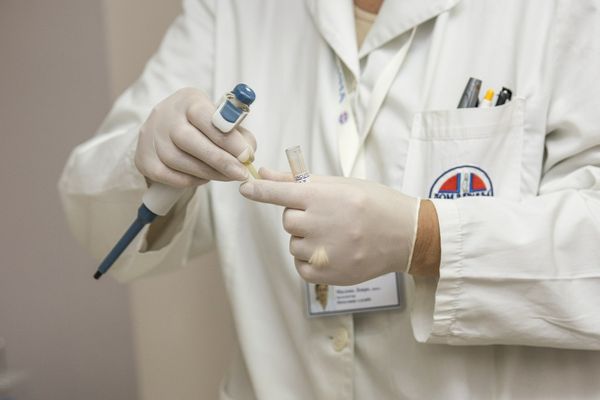5.5.1
The Functionalist Approach
The Functionalist View of the Medical Profession
The Functionalist View of the Medical Profession
Functionalists view the medical profession as protecting patients and benefitting society. They support the biomedical model of health, suggesting that it has brought power and prestige to the medical profession.


The biomedical model
The biomedical model
- The biomedical model has given doctors and other medical professionals power and control and the ability to effectively treat patients, through the following:


The medical profession
The medical profession
- Expert knowledge gained through many years of training.
- Altruism, or the ability to act only in the interests of the patient.
- Universalistic values, that is, they act with values that apply equally to everyone.


The medical profession cont.
The medical profession cont.
- A legal monopoly; only those who are qualified can legally practice medicine.
- A code of ethics which controls and regulates medical professionals by, for example, ensuring that the needs of the patients are always put first and that confidentiality is protected.
Criticisms of the Functionalist View
Criticisms of the Functionalist View
Functionalists view the medical profession as protecting patients and benefitting society. However marxists, feminists and other arguments challenge this assertion.


Ideology
Ideology
- Weberian and neo-Marxists argue that professionalism isn’t good for society and is part of an ideology used by the medical profession to advance and defend its own status, power and financial rewards.


Marxist views
Marxist views
- Marxists argue that, because most health professionals work in the NHS, they are likely to place cost ahead of appropriate treatment.
- Navarro insists that the health professionals are more concerned with social control of the sick by getting them back to work as quickly as possible in service of a capitalist economy.


Feminist view
Feminist view
- Feminists argue that doctors reinforce patriarchy, for example, through the policing of motherhood and their control over women through the medicalization of pregnancy and childbirth.


Values
Values
- Doctors do no always operate with universalistic values, such as treating all patients equally, for example, by giving private patients preferential treatment.


Lack of control of quality
Lack of control of quality
- There is little control over the quality and competence of diagnosis and treatment; training and specialist knowledge mean that doctors are given a great deal of independence, so incompetent doctors are rarely discovered or their decisions challenged.


Iatrogenesis
Iatrogenesis
- There is a problem with iatrogenesis, that is, some medical treatments do more harm than good.
1Theory & Methods
1.1Sociological Theories
1.2Sociological Methods
2Education with Methods in Context
2.1Role & Function of the Education System
2.2Educational Achievement
2.3Relationships & Processes Within Schools
3Option 1: Culture & Identity
3.1Conceptions of Culture
3.2Identity & Socialisation
3.3Social Identity
3.4Production, Consumption & Globalisation
4Option 1: Families & Households
4.1Families & Households
4.2Changing Patterns
4.3The Symmetrical Family
4.4Children & Childhood
5Option 1: Health
5.1Social Constructions
5.2Social Distribution of Healthcare
5.3Provision & Access to Healthcare
5.4Mental Health
6Option 1: Work, Poverty & Welfare
6.1Poverty & Wealth
7Option 2: Beliefs in Society
7.1Ideology, Science & Religion
7.2Religious Movements
7.3Society & Religion
8Option 2: Global Development
8.1Development, Underdevelopment & Global Inequality
8.2Globalisation & Global Organisations
8.3Aid, Trade, Industrialisation, Urbanisation
9Option 2: The Media
9.1Contemporary Media
9.2Media Representations
10Crime & Deviance
10.1Crime & Society
10.2Social Distribution of Crime
Jump to other topics
1Theory & Methods
1.1Sociological Theories
1.2Sociological Methods
2Education with Methods in Context
2.1Role & Function of the Education System
2.2Educational Achievement
2.3Relationships & Processes Within Schools
3Option 1: Culture & Identity
3.1Conceptions of Culture
3.2Identity & Socialisation
3.3Social Identity
3.4Production, Consumption & Globalisation
4Option 1: Families & Households
4.1Families & Households
4.2Changing Patterns
4.3The Symmetrical Family
4.4Children & Childhood
5Option 1: Health
5.1Social Constructions
5.2Social Distribution of Healthcare
5.3Provision & Access to Healthcare
5.4Mental Health
6Option 1: Work, Poverty & Welfare
6.1Poverty & Wealth
7Option 2: Beliefs in Society
7.1Ideology, Science & Religion
7.2Religious Movements
7.3Society & Religion
8Option 2: Global Development
8.1Development, Underdevelopment & Global Inequality
8.2Globalisation & Global Organisations
8.3Aid, Trade, Industrialisation, Urbanisation
9Option 2: The Media
9.1Contemporary Media
9.2Media Representations
10Crime & Deviance
10.1Crime & Society
10.2Social Distribution of Crime
Unlock your full potential with Seneca Premium
Unlimited access to 10,000+ open-ended exam questions
Mini-mock exams based on your study history
Unlock 800+ premium courses & e-books